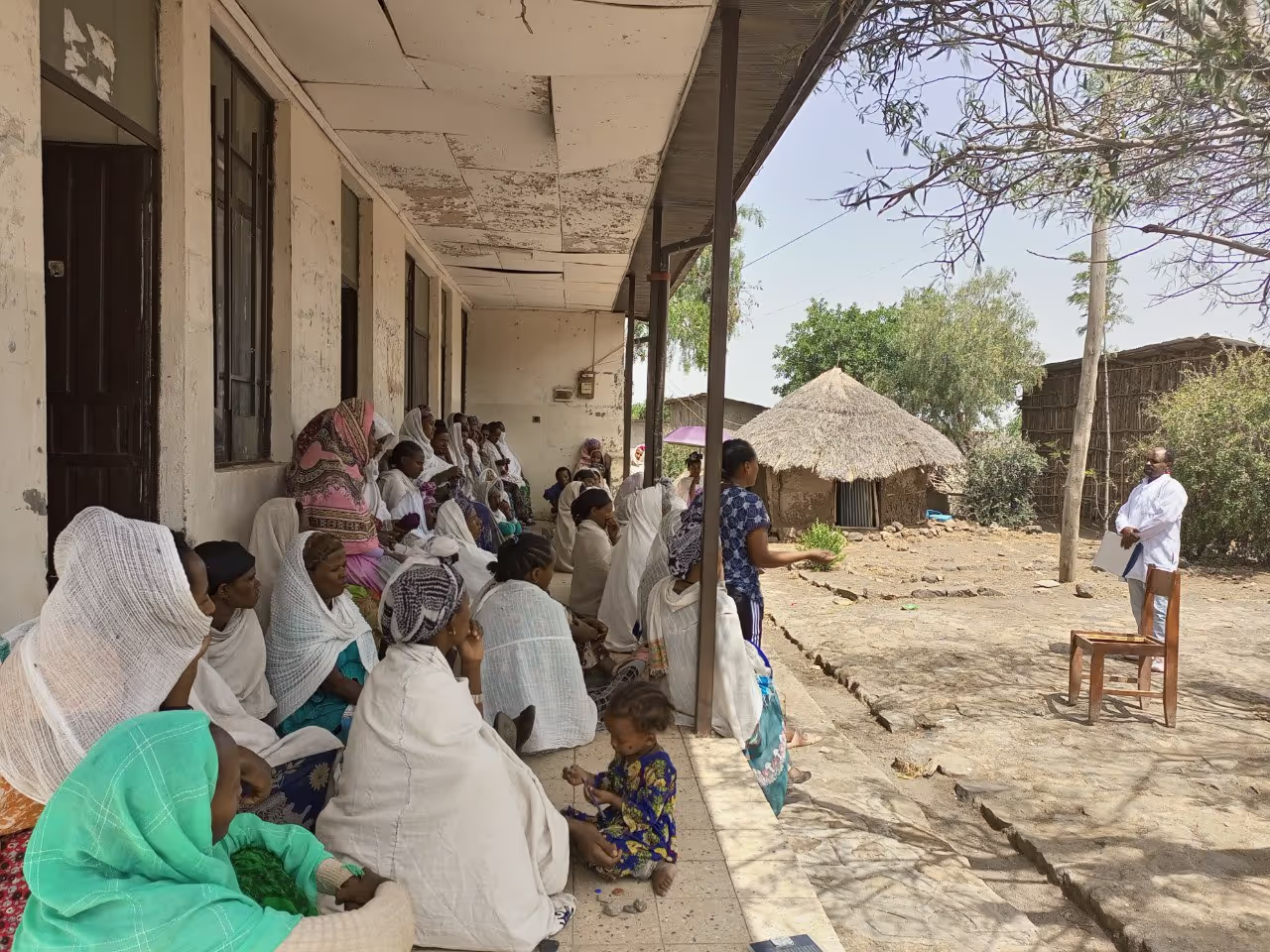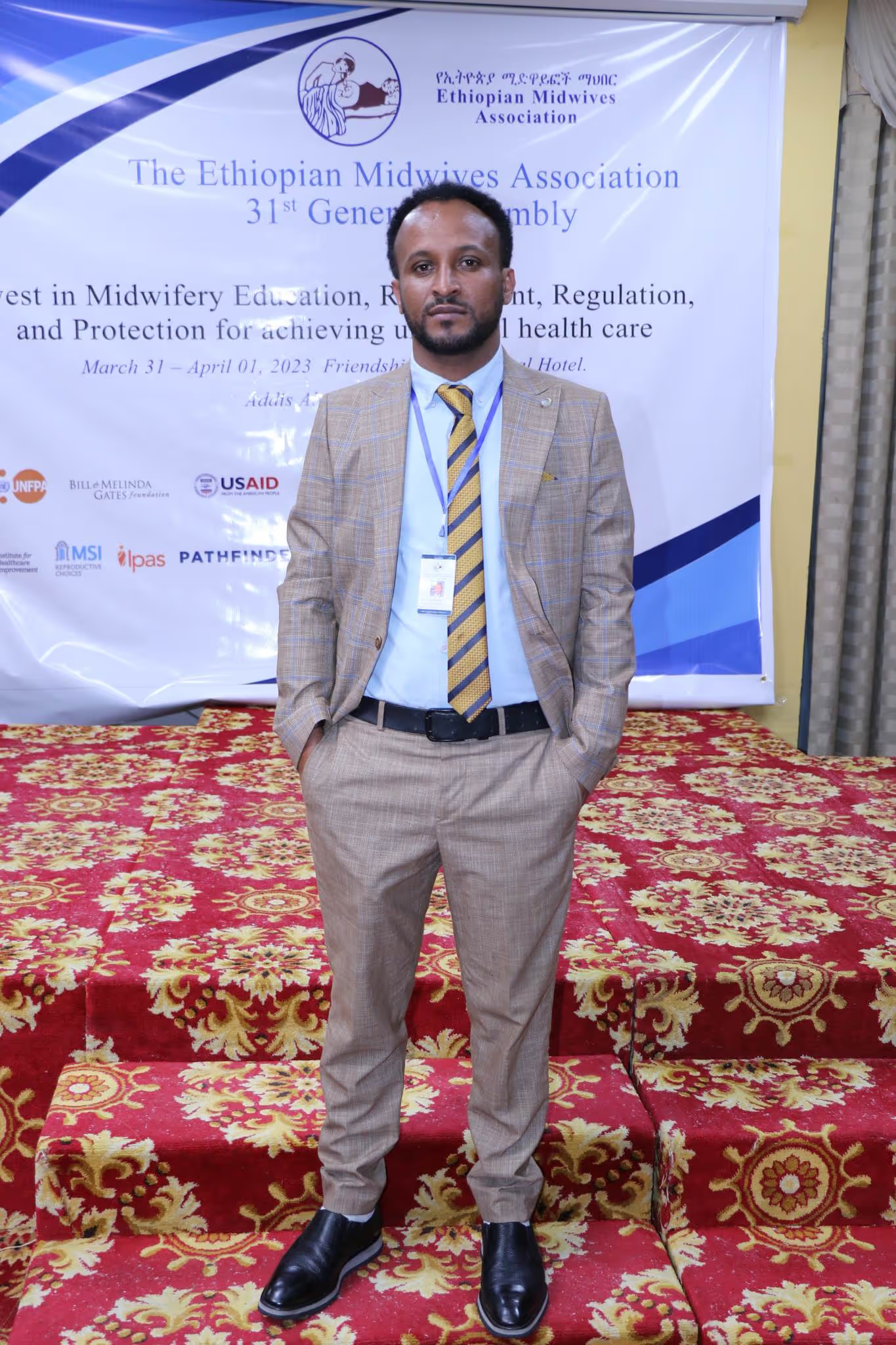Improving access to Comprehensive Abortion Care Services among internally displaced women in Northern Ethiopia

Project overview
This mixed methods study explored access to Comprehensive Abortion Care (CAC) services among internally displaced women in the humanitarian setting of Northern Ethiopia and the potential of improving services through midwifery-led person-centered care.
Countries
Ethiopia
Organisations
Karolinska Institutet
Partners
Ethiopian Midwives Association, McMaster University, Ministry of Health (Ethiopia)
Area of funding
Humanitarian Research
Grant amount
£394,197
Start date
01
July
2023
End date
01
December
2024
Project length (in months)
17
Funding calls
Focus areas
No items found.
Topics
Sexual and Reproductive Health
Refugees and IDPS
Status
Live
Project solution
This project offers [specific solution or intervention] to tackle [challenge]. By implementing [strategies, tools, or innovations], the project aims to achieve [desired outcomes]. The approach is designed to [specific actions or methods] to bring about meaningful change in [community, region, or issue area].
Expected outcomes
This project aims to achieve [specific outcomes], such as [measurable results, improvements, or changes]. The expected impact includes [benefits to the target community, advancements in research or innovation, or long-term effects]. By the end of the project, we anticipate [specific changes or milestones] that will contribute to [broader goals or objectives].
Principal Investigator: Dr. Tewodros Seyoum
Co-PI: Professor Marie Klingberg Allvin
Research Snapshot: Strengthening access to comprehensive abortion care in conflict-affected settings
This study in conflict-affected Amhara, Ethiopia, found high levels of need for comprehensive abortion care (CAC); with potential for improving quality of care, including through strengthening capacity of midwives.
What did the study set out to achieve?
Using a health systems approach this study set out to evaluate the implementation of midwifery-led person-centered Comprehensive Abortion Care (CAC) using quantitative and qualitative data collection methods. The project incorporated three studies focusing on induced abortion and contraceptive counselling as part of CAC:
- An in-depth qualitative study to explore the perceived needs and preferences of internally displaced women (IDW) related to sexual and reproductive health and rights (SRHR) services.
- A prospective cross-sectional study to evaluate the impact of midwifery-led CAC on the experiences and autonomy, clinical outcomes for induced abortion (medical and/or surgical), contraceptive uptake, and the health care system costs associated with midwifery-led person-centered CAC.
- An explorative qualitative study will further explore the challenges and opportunities of implementing midwifery-led CAC services in humanitarian settings.
Based on the preferences and needs of women, the study hoped to explore how midwives can be actors in strengthening the access to and quality of CAC programs in humanitarian contexts, which is explained through the theory of change:
- Evidence from exploration of the SRHR needs and preferences of IDW will inform the design of interventions to facilitate midwife-led CAC programming.
- Involving midwives in delivering CAC services will improve access to CAC services in humanitarian contexts and lead to improved person-centered clinical outcomes and reproductive autonomy, and enhance the resilience of the health system to provide CAC.
- Ensuring high quality midwifery-led CAC services will also increase post-abortion contraceptive use, reducing unsafe abortions and associated adverse health outcomes.
- The evidence generated by exploring the challenges midwives face in delivering midwife-led CAC services will inform national policy decisions for future investments in the midwifery workforce.
- Identifying the facilitators and challenges of implementing CAC from a client- and provider-centred perspective will also provide evidence for future program expansion in similar settings.
What were the key findings?
- Women seeking comprehensive abortion care during the ongoing conflict in Amhara, often received poor-quality, delayed care, with high referral rates, despite nearby health facilities.
- Incomplete abortion was the leading reason for seeking care (62.9% of cases), yet 50.6% were not treated at the first facility. Low-quality care affected 26.4% of women, mostly treated by midwives. This reflects the broader pattern of provision: 63% of women treated received care from midwives. Post-abortion contraceptive counselling was missed by 39%, and 72.8% of those treated were not using contraception at follow-up.
- Women consulted preferred private, confidential, person-centred services.
- Despite public CAC availability, financial burdens for women seeking care were high, averaging US$134.20, plus opportunity costs averaging US$36.60.
- Systemic barriers for midwives in delivering CAC included personal belief conflicts, lack of private spaces, supply shortages, limited training, and high workloads from many incomplete abortions.
What does this mean for policy-makers and practitioners?
The findings underscore the significant need for high quality safe abortion and post-abortion care in humanitarian settings in Ethiopia while pointing to specific opportunities to improve provision, including potentially strengthening the role of midwives in delivery of CAC.
The high referral rates and care delays in northern Ethiopia point to serious service delivery gaps and underscore the need for more effective triage systems, standardised referral protocols, and equitable resource distribution across facilities.
Findings on quality of care underscore the need for provider training in person-centered approaches, especially for vulnerable groups like IDPs—poor contraceptive counselling and uptake point to missed integration opportunities. Disparities in access and quality among IDPs call for targeted, equity-focused interventions.
The high financial burden on households emphasises the need for policy solutions to reduce both direct and indirect costs of seeking care, ensuring more equitable access to CAC. Findings could inform humanitarian actors providing sexual and reproductive health services in similar crisis-affected settings.
No items found.
Project delivery & updates
Stay up to date with the latest developments from this project. Here, you will find details on what has been delivered, resources created, and regular updates as the project progresses. Access key documents, reports, and other materials to see how the project is making an impact.
No resources/updates have been published yet for this project. Sign up for our newsletter to stay informed about upcoming publications and updates!
Join our Newsletter
Resources
Evidence brief: Enhancing the delivery of comprehensive abortion care in humanitairan settings, Ethiopia
Evidence review
LEARN MOREResearch Snapshot: Strengthening access to comprehensive abortion care in conflict-affected settings
Research snapshot
LEARN MORELatest updates
No items found.
